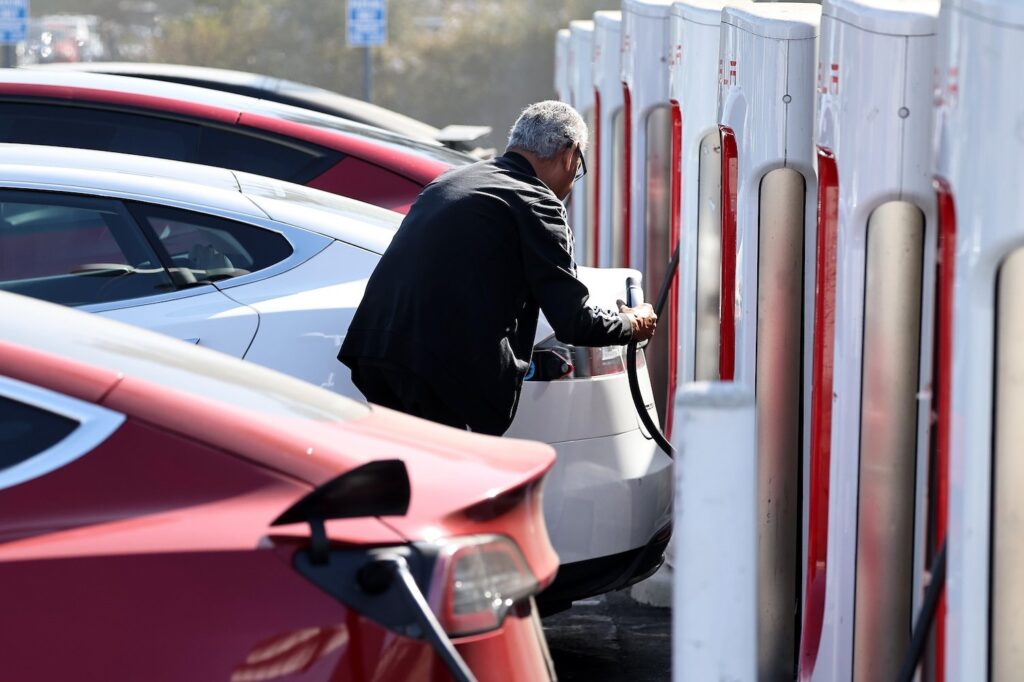In a move that reflects the shifting priorities of federal policy, the General Services Administration (GSA) is preparing to dismantle electric vehicle (EV) chargers across all government properties in the United States. This decision aligns with a broader agenda to downplay green initiatives and reverse policies set by the previous administration.
The GSA, responsible for managing federal buildings and vehicles, has classified the existing network of EV chargers and approximately 8,000 plugs as “not mission critical.” Additionally, any electric vehicles acquired during President Biden’s tenure are set to be phased out. This shift is consistent with the current administration’s stance against electric vehicles and the broader movement towards sustainable energy.
President Trump’s administration has actively sought to overturn green policies, including challenging California’s strict emissions standards and its mandate for all cars sold in the state to be electric by 2035. This move comes despite significant federal investments under the Biden administration to promote green technology, including $975 million allocated for upgrading federal facilities with sustainable technologies through the Inflation Reduction Act.
An email from the GSA, as reported by The Verge, confirmed the directive: “As GSA has worked to align with the current administration, we have received direction that all GSA owned charging stations are not mission critical.” This communication instructs federal employees to initiate the shutdown of EV chargers, pending the cancellation of existing network contracts.
Elon Musk, known for his leadership in the electric vehicle industry, is now involved in the administration’s cost-cutting efforts, which include reducing EV support. This seems paradoxical given Musk’s role in popularizing electric cars with Tesla, a company he once envisioned as a catalyst for global green transformation. However, recent shifts suggest Musk supports eliminating EV subsidies and charging infrastructure, potentially to bolster Tesla’s Supercharger network prominence.
While the discontinuation of federal EV chargers may seem drastic, there are arguments in favor of the decision. Reports indicate that many chargers on federal properties are outdated, relying on slower Level 2 technology and obsolete plugs like CHAdeMO. These issues, combined with user fees, diminish the chargers’ utility.
The ongoing reductions in federal workforce numbers also play a part in the decision, as fewer employees might necessitate fewer charging facilities. Despite the potential rationale, the lack of modern, effective EV charging infrastructure on federal properties underscores the challenges facing the transition to sustainable transportation.
The use of economic policy to direct behavior is a common governmental strategy, and the current direction seems to prioritize traditional energy sources over green alternatives.
Original Story at gizmodo.com
